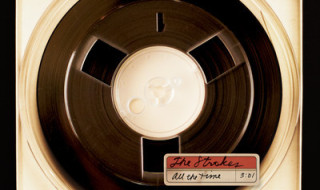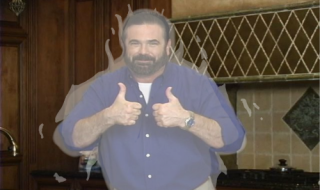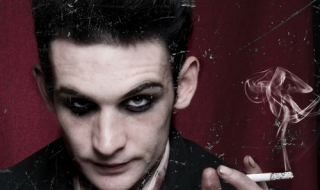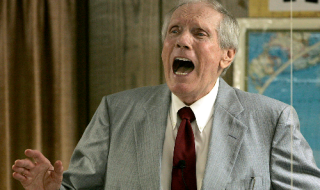What’s that old adage? “When you assume, you make an ass out of you and me.” Yeah, well in this case, my assumption didn’t hurt anyone. In hindsight, it was a tad lazy – and perhaps made an ass outta me – but certainly not harmful in any way.
Here’s the thing: I got an email from ZME’s esteemed editor and founder Tibi asking me if I’d have any interest in reviewing a book called How to Listen to Great Music by Robert Greenberg. But before my brain could consider, let’s say, the title alone, the intellectual troglodyte took over: I assumed that because ZME is a popular music blog – that is, stuff you’d hear on the radio outside of NPR* – the book would be a thesis of some kind on the greats. Ya know, Sgt. Pepper, Blonde on Blonde, Exile on Main St., etc. Or, maybe how (and perhaps why) to choose Led Zeppelin over Wolfmother.
This is, of course, to say nothing of why anyone would write a book describing how to listen to pop music. ‘Why’ makes sense; ‘how’ does not. How do you listen to The Beatles or Aretha Franklin? You play it. You listen to it. You enjoy the melodies or the drums or the… whatever. Done. Simple. No reason to write a book. I just wrote the instructions for you. (You could argue that, for example, a song like “Like a Rolling Stone” could be appreciated on multiple levels, one of which requiring a short history lesson of the early ’60s [amongst other things, but I digress…], but since not all pop songs necessitate such reading, it’s largely an irrelevant argument.)
So, then, a book discussing the how-to’s of enjoying pop music seems ridiculous, as does my initial assumption of the book. Thus, a new, and more logical assumption, is generated: This book isn’t about pop music, but rather about a genre that, for its time, was popular. That is to say, it was pop music before pop music was pop music. Lost yet? I’m undoubtedly talking about classical music. Or as the author calls it, “concert music.” (Concert music, for the uninitiated, “is composed music [that is, ‘classical music’] intended primarily to be listened to.”)
Which brings me to an important question: Why would a blog like ZME be discussing a book on classical music? Well, for a couple of reasons. First, while ZME is a popular music blog, it is before anything else a blog about music. And since concert music is music, it qualifies as blog-able material here at ZME. Second, and much more importantly, concert music has more in common with pop music than you might think.
Beyond the obvious – like progressive rock and metal’s prediction towards the symphonic and/or orchestral arrangements, or orchestral pop or whatever genre borrows from concert music – the structure and purpose of concert music shares much with the likes of pop music of the last 70 years. The whole idea of songwriting and composition in pop music has a distinct parallel to the composition process in concert music. As an example, there is a discussion of the logic behind the structure of passacaglia, one variational procedure of the Baroque era. Greenberg describes it thusly:
Passacaglia is the essence of the Baroque era duality of exuberance and control: the theme, the control element, the invisible “hand of God,” is a structural, below-the-surface element, its cyclical repetitions controlling the changing and complex surface of the music.
Doesn’t that sound like the repetitious nature of pop music? Sure does. Each cyclical repetition (the chorus) bringing about the next verse or the bridge and then back to the chorus for one final hurrah. And if we back out one level more, we’ll see repetition of the structural form of verse-chorus-verse. The challenge within the limits of the pop qua pop song (i.e. a song written for popularity [“Billie Jean,” for example]) is to see who can write a melody that much closer to perfection. Greenberg goes on with concert music’s logic within Passacaglia:
To the casual observer, this process may seem absurdly rigorous. For example, what if a composer doesn’t want to keep repeating the same bass line over and over again, what if halfway through the piece he decides to do something different? It would never occur to him any more than it would occur to a batter in a baseball game to step up to the plate with a lacrosse stick. Without discipline there cannot be art […]
Which is exactly the logic of, say, Max Martin when he writes a pop hit. He doesn’t write a verse and a chorus of electro pop and then suddenly have the second verse be death metal in style. That would make no sense, and certainly wouldn’t be art. Well maybe to someone it would be ironically so; but for the purposes of this discussion, that decision would be irrational to a songwriter. So, too, for a concert music composer. No, Max Martin, much like the all-time greats like Bach or Vivaldi, see repetition as a key to logical compositional structure. You listen to “I Want It That Way” because of that chorus, that repetition. When you press ‘play’ you patiently wait for that reminder of why you decided to hit the ‘play’ button in the first place: the guaranteed pay-off of the familiar, the known, the comfort zone if you will. Once again, though, Greenberg puts it best when he describes the ritornello form movement of the Baroque:
Ritornello form is just that sort of formal construct that imbues a piece of instrumental music with a sense of logical “inevitability.” In such a movement, every time we hear the ritornello theme return – every time we hear the refrain – we know we’ve come back home; and each time we depart from it, we know we will eventually return. [emphasis added]
Yes, the chorus is short and simultaneously the most desirable part of a song, but that’s the best part of it being structure – you’ll arrive at it again before composition ends.
I could go on and on for another thousand words, but if you’re not convinced by now, dear reader, you never will be. Classical music – ahem, concert music – is as relevant now as it ever was when it didn’t have to compete with Les Paul. Perhaps, given the near infinite choices of music these says, concert music is more important, if only for that reason. But it’s an important one. It predates rap, rock, jazz, blues, or anything else on any radio station today. And concert music can still bring the masses together. Why, even here in Madison, WI we have Concerts on the Square during the summer months. Think about that for a moment: In the 21st Century, people leave their homes – filled with iPods, Pandora, LCD televisions, XBox’s – to gather on the Capitol Square to listen to an orchestra play centuries-old music. You can throw out the fascinating history contained within concert music (as well as How To Listen) and still realize that this stuff – this great stuff – is just as relevant as Lady GaGa.
*I am aware of the existence of classical music stations. They are, however, few and far between, and, for the purposes of this quasi-joke, don’t really exist. I’m also aware that NPR covers pop music. It’s a bit. Deal.



